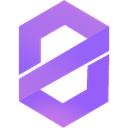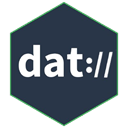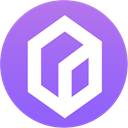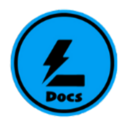Exploring The Web Alternative: Beyond the Traditional Internet
In an increasingly centralized digital landscape, many users are seeking powerful and innovative The Web alternative solutions. While the traditional internet, often referred to simply as "The Web," has revolutionized how we access information and connect, it faces challenges regarding privacy, censorship, and control. This article delves into the most compelling alternatives that offer a more decentralized, secure, and user-controlled online experience, ranging from peer-to-peer filesystems to fully anonymous networks.
Top The Web Alternatives
If you're looking to break free from the conventional internet model and explore new frontiers of digital interaction, these alternatives provide a glimpse into the future of decentralized and private communication. Each offers unique features and approaches to building a more robust and resilient web.

IPFS
IPFS (InterPlanetary File System) is a fantastic The Web alternative for those interested in a global, versioned, peer-to-peer filesystem. It's like a single BitTorrent swarm for all data, combining concepts from Git and BitTorrent. As a Free and Open Source solution available on Mac, Windows, Linux, and BSD, IPFS is ideal for decentralized file sharing and building virtual filesystems based on blockchain technology.

ZeroNet
ZeroNet offers real-time updated, Peer-to-Peer sites using the BitTorrent network, making it a compelling The Web alternative for decentralized web hosting. It's Free and Open Source, supporting Mac, Windows, Linux, and Web platforms. ZeroNet features include support for TOR, decentralized email and storage, cryptocurrency support, and a focus on independent, distributed computing, making it a robust choice for a censorship-resistant internet.

I2P
I2P (Invisible Internet Project) provides strong privacy protections for communication over the Internet, serving as an excellent The Web alternative for anonymity. This Free and Open Source platform, available on Mac, Windows, Linux, Android, and BSD, is known for anonymous email, built-in proxy features, strong encryption, and an internal torrent network, ensuring your online activities remain private and secure.

Freenet
Freenet is a free and open-source The Web alternative that enables anonymous file sharing and browsing of "freesites." It's available on Mac, Windows, Linux, and BSD. Key features include full anonymity, decentralized architecture, and secure filesharing, making it ideal for those prioritizing complete privacy and censorship resistance in their online interactions.

Beaker browser
The Beaker browser is an experimental peer-to-peer web browser based on the Dat protocol, making it a unique The Web alternative. This Free and Open Source solution works on Mac, Windows, and Linux. It stands out with its decentralized nature, peer-to-peer capabilities, and a built-in editor, allowing users to publish and browse P2P websites directly from their browser.

Dat
Dat is a non-profit, secure, and distributed package manager for data, positioning it as a strong The Web alternative for decentralized data sharing. Available as Free and Open Source software for Mac and Linux, Dat excels in versioning data locally, and sharing and syncing data over the internet, thanks to its decentralized, distributed, and peer-to-peer file-sharing capabilities.

Solid
Solid (derived from "social linked data") is a proposed set of conventions and tools for building decentralized Web applications based on Linked Data. As a Free and Open Source The Web alternative, Solid is available on Mac, Windows, Linux, and Web, with self-hosting options. It focuses on empowering users with control over their data through decentralized and distributed architecture.

IPZN
IPZN is a platform aiming to grow the decentralized web through an incentivized decentralized search engine, offering a unique The Web alternative perspective. This Free and Open Source solution runs on Windows, Linux, Web, and Android, with self-hosting capabilities. It leverages blockchain for decentralized storage and search, providing a framework for unified functionalities in the decentralized web.

Decentralized Internet
The Decentralized Internet project supports a new internet that is more open, free, and censorship-resistant. It's a comprehensive The Web alternative, available as Free and Open Source software on Mac, Windows, Linux, Web, Android, and more, with self-hosting options. Its features include blockchain technology, decentralized and distributed computing, and a focus on building a resilient and user-controlled online environment.
Exploring these alternatives to The Web opens up a world of possibilities for greater privacy, security, and freedom online. We encourage you to delve into each option to find the best fit for your specific needs, whether you're seeking enhanced anonymity, peer-to-peer file sharing, or a fully decentralized browsing experience.